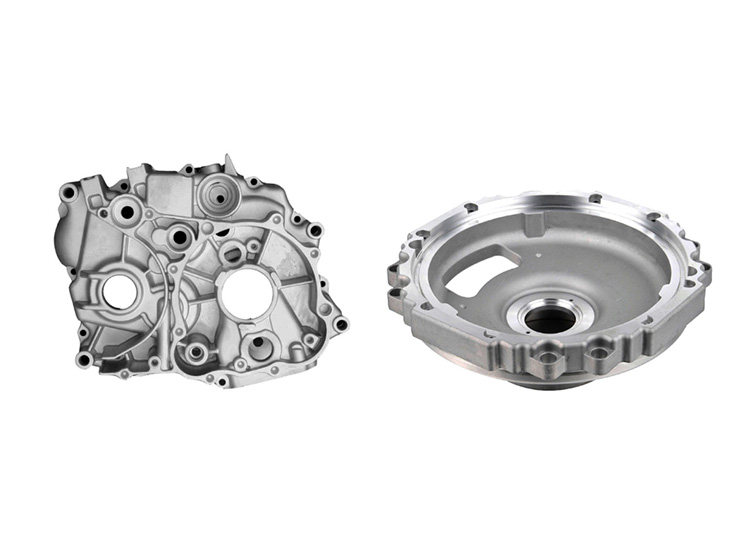The Of Stahl Specialty Company
The Of Stahl Specialty Company
Blog Article
The Ultimate Guide To Stahl Specialty Company
Table of ContentsThe Basic Principles Of Stahl Specialty Company A Biased View of Stahl Specialty CompanyAn Unbiased View of Stahl Specialty CompanyWhat Does Stahl Specialty Company Do?The Ultimate Guide To Stahl Specialty Company
Chemical Contrast of Cast Light weight aluminum Alloys Silicon advertises castability by reducing the alloy's melting temperature level and boosting fluidness throughout spreading. Furthermore, silicon adds to the alloy's toughness and wear resistance, making it important in applications where sturdiness is vital, such as vehicle parts and engine parts.It likewise enhances the machinability of the alloy, making it simpler to refine into ended up items. In this way, iron adds to the general workability of aluminum alloys. Copper boosts electric conductivity, making it advantageous in electric applications. It likewise enhances rust resistance and includes to the alloy's overall strength.
Manganese contributes to the stamina of light weight aluminum alloys and improves workability. It is commonly made use of in wrought light weight aluminum products like sheets, extrusions, and profiles. The visibility of manganese aids in the alloy's formability and resistance to fracturing throughout fabrication processes. Magnesium is a lightweight aspect that gives strength and effect resistance to light weight aluminum alloys.
Zinc enhances the castability of aluminum alloys and assists control the solidification procedure throughout spreading. It enhances the alloy's stamina and firmness.
7 Simple Techniques For Stahl Specialty Company
Since aluminum-silicon alloys have excellent casting residential properties, high gas residential or commercial properties, easy procedures, and outstanding corrosion resistance, aluminum-silicon alloys are most typically used in the die-casting market in the house and abroad. At the very same time, aluminum-silicon alloys are also reasonably very early and widely identified alloys established and made use of in die-casting. After continual research and renovation, many of the existing global mainstream aluminum-silicon alloys have been settled and are absolutely nothing more than A356, A360, A380, ADC12, B390, and A413.
The primary thermal conductivity, tensile stamina, return toughness, and elongation vary. Select appropriate raw products according to the performance of the target item created. Amongst the above alloys, A356 has the greatest thermal conductivity, and A380 and ADC12 have the lowest. The tensile restriction is the contrary. A360 has the very best return stamina and the highest elongation rate.

The Definitive Guide for Stahl Specialty Company
In accuracy casting, 6063 is appropriate for applications where elaborate geometries and top notch surface finishes are vital. Instances consist of telecommunication rooms, where the alloy's premium formability enables sleek and aesthetically pleasing layouts while maintaining structural integrity. Likewise, in the Lighting Solutions sector, precision-cast 6063 elements produce sophisticated and efficient lighting fixtures that call for detailed shapes and good thermal performance.
(https://anotepad.com/note/read/k3dhi827)
It causes a better surface coating and far better corrosion resistance in A360. Additionally, the A360 displays exceptional prolongation, making it ideal for facility and thin-walled elements. In precision casting applications, A360 is well-suited for sectors such as Consumer Electronics, Telecommunication, and Power Devices. Foundry near me. Its enhanced fluidness allows for detailed, high-precision parts like smart device cases and interaction tool housings.

In accuracy spreading, light weight aluminum 413 beams in the Consumer Electronics and Power Devices industries. It's frequently utilized to craft detailed components like mobile phone housings, camera bodies, and power device casings. Its accuracy is remarkable, with limited resistances approximately 0.01 mm, making sure flawless item assembly. This alloy's premium corrosion resistance makes it an exceptional option for outside applications, making sure resilient, sturdy products in the discussed markets.
More About Stahl Specialty Company
Once you have actually chosen that the light weight aluminum pass away casting procedure is suitable for your task, a vital following step is choosing the most proper alloy. The light weight aluminum alloy you pick will substantially influence both the casting process and the residential properties of the last product. Due to this, you should make your decision very carefully and take an enlightened approach.
Establishing one of the most suitable light weight aluminum alloy for your application will mean evaluating a wide variety of characteristics. These comparative alloy attributes comply with the North American Pass Away Casting Association's standards, and we've separated them right into 2 categories. Aluminum Castings. The first category addresses alloy qualities that affect the production procedure. The 2nd covers characteristics impacting the properties of the final item.
The alloy you choose for die spreading directly affects numerous aspects of the casting process, like how easy the alloy is to deal with and if it is susceptible to casting flaws. Warm cracking, additionally understood as solidification cracking, is a normal die casting problem for light weight aluminum alloys that can result in internal or surface-level splits or splits.
Stahl Specialty Company for Beginners
Particular light weight aluminum alloys are much more vulnerable to warm splitting than others, and your selection must consider this. An additional usual defect discovered in the die spreading of aluminum is pass away soldering, which is when the actors stays with the die wall surfaces and makes ejection hard. It can damage both the cast and the die, so you ought to try to find alloys with high anti-soldering homes.
Corrosion resistance, which is currently a noteworthy attribute of aluminum, can my review here differ considerably from alloy to alloy and is a vital particular to think about depending upon the environmental conditions your product will certainly be subjected to. Put on resistance is one more home frequently sought in light weight aluminum items and can separate some alloys.
Report this page